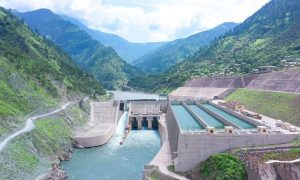Engineering Post Report
The Pakistani youth have been hit the hardest by massive unemployment in the backdrop of recent devastating floods, deadliest heavy rains, ongoing foreign exchange crisis and rising inflation.
About 64 percent of the country’s population is under the age of 30. There is a noticeable youth bulge , which if not addressed properly, timely and immediately will have serious adverse effects on the state, society by and large and national economy thereby further exacerbating the hopelessness, despair and misery now afflicting the nation.
The skills mismatch widespread among 18 to 15 years olds in Pakistan is most probably one of the main causes of youth unemployment which is a burden Pakistan must shoulder on priority basis.
Many young people , most unfortunately, do not have any access at all, what to talk about easy access to high quality education or the skills needed to find and keep jobs in a highly competitive economy.
Due to a lack of relevant and market -driven skills, Pakistan is losing almost an entire generation to say the least.
The dire need for better skills , most unfortunately, kills many unskilled people obsolete thus forcing them to continue living in poverty. Illiterate workers put in long hours of labour with inflated hopes for their careers since they know they are not going to go very far without even the most basic facilities in life. According to a recent report of the World Bank regarding the adverse impact of COVID-19 on South Asian youth, around 1.6 million youths are idle alone in Pakistan. The COVID-19 pandemic had gripped the world some three years back hitting countries around the globe in varying degrees has left millions of youth idle and it is still prevalent here and there even now.
The first somewhat comprehensive analysis of post-pandemic global data “Collapse and Recovery: How Covid Eroded Human Capital and What To Do About It” cited a drastic change in the school enrolment percentages in Pakistan before and after the pandemic.
The time to take prompt, appropriate and swift action is now or otherwise the countries risk scarred generations of unmet potential.








